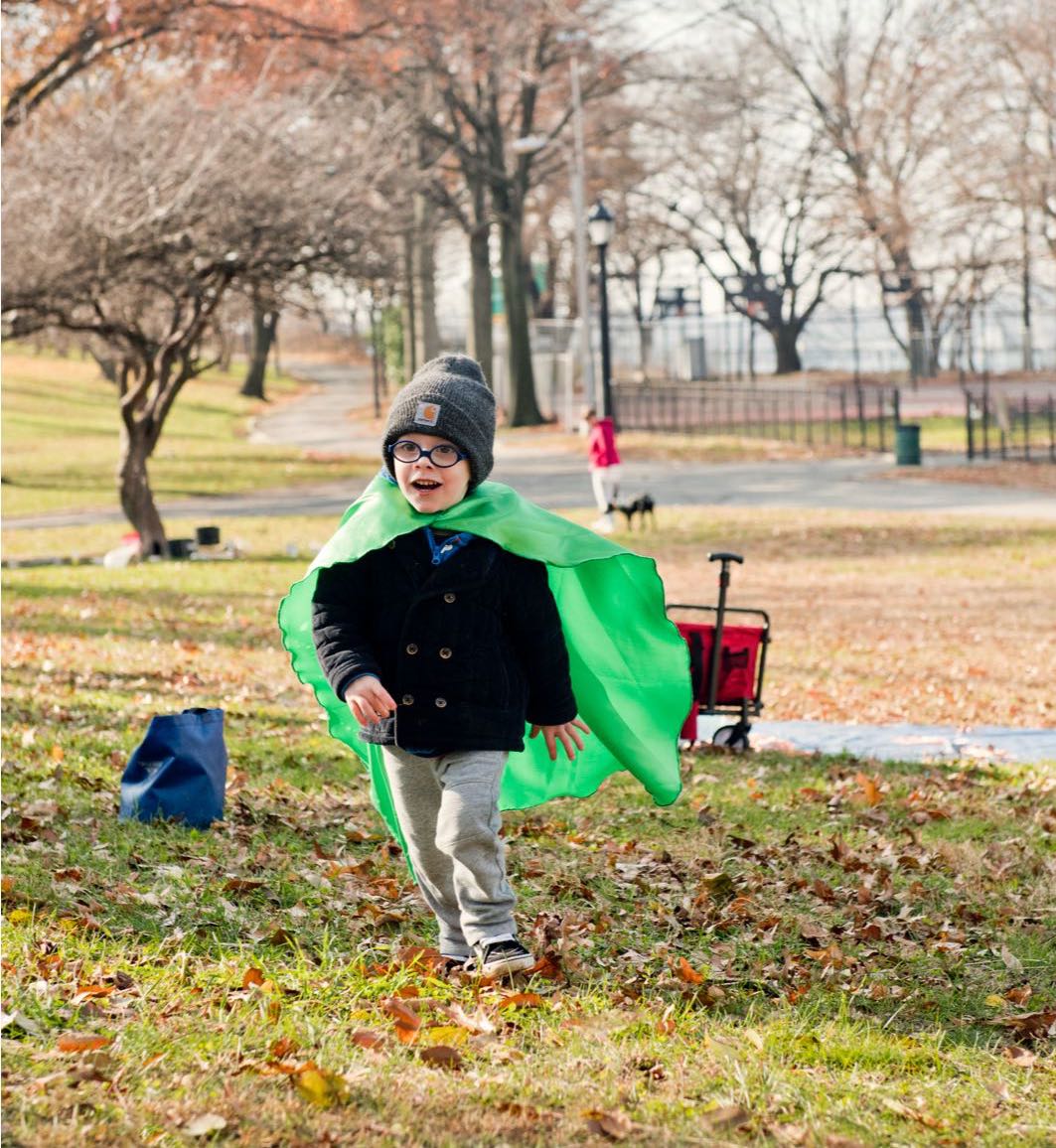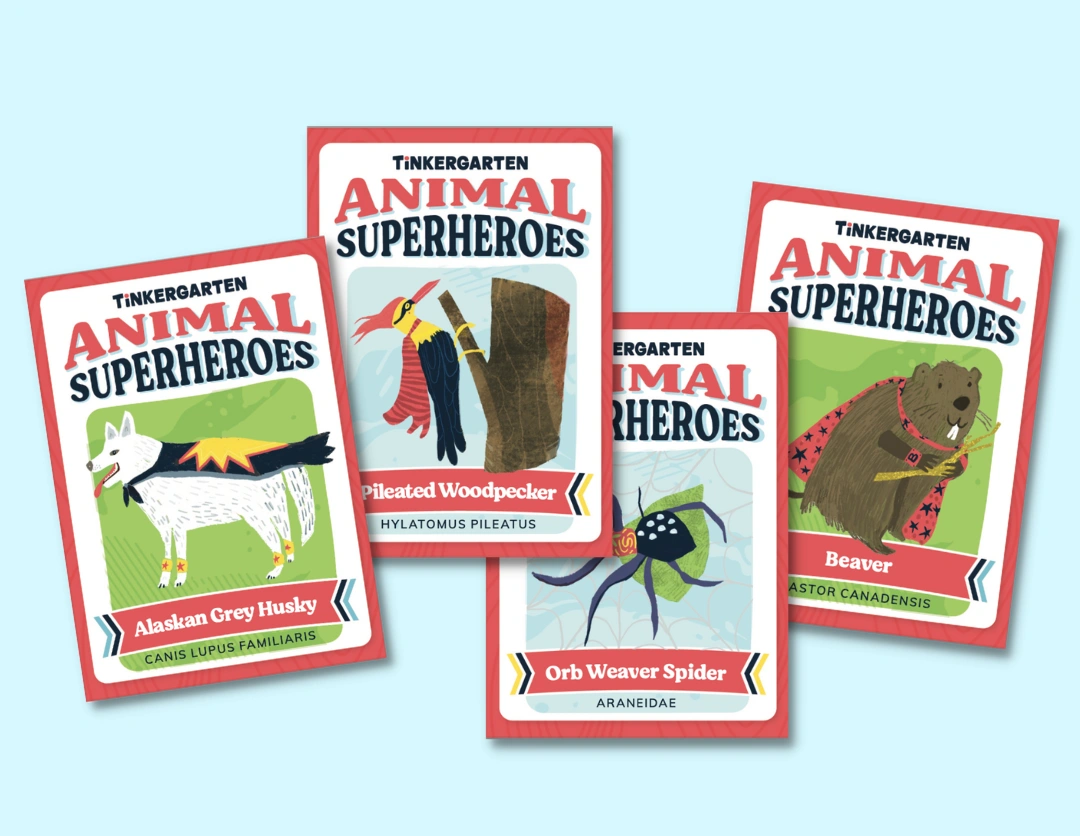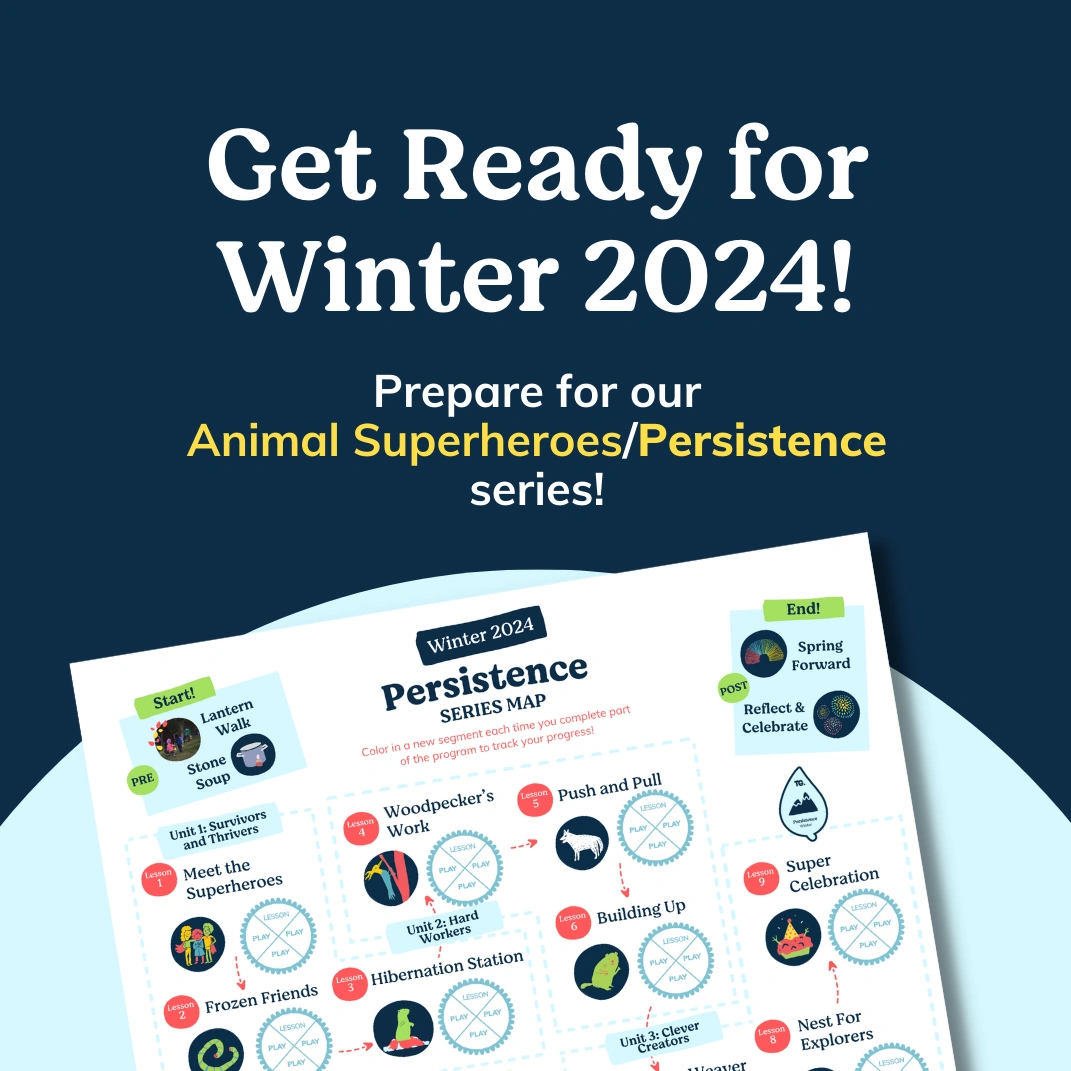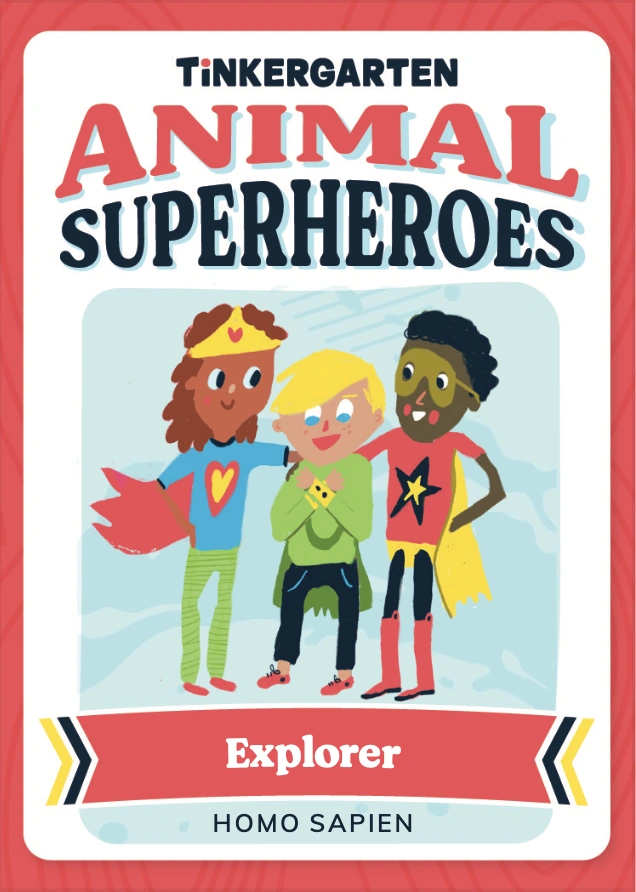Young children’s worlds are, by design, a blend of fantasy and reality, so the notion of having super powers is right in their wheelhouse. Even very little kiddos can move and pretend to have super powers, flying around or pretending to be super-strong. Superhero play just gets more elaborate and collaborative as our superheroes age and have the social skills to negotiate cooperative play.
Superhero play helps kids develop a true superpower—persistence. And, like with any Tinkergarten topic, we teach it through play. Superhero play is a rather powerful narrative theme that helps unify our lessons and makes it quite easy for children to extend the play between lessons.
For many of us, it can feel hard to find role models for kids that we can count on. But kids need people and creatures to emulate, to look up to and to dream about becoming. In other words, there's never been a better time for superhero play.
“Why do we fall? So we can learn to pick ourselves back up.”—BATMAN
Why superheroes?
Superheroes are timeless and beloved, even though there is some warranted debate about particular aspects of superhero play (more on that below). When we search for a play theme, we look for subject matter that is accessible, genuinely engaging, and open-ended enough to welcome all kids and hook them in to keep playing in many, different ways. Superhero play offers all three in spades.
Whether kids are simply pretending to zoom about the room on their own or they are part of a troop of superheroes, superhero-inspired pretending supports kids both with being flexible thinkers and, eventually, with knowing the difference between reality and fantasy. Pretend play sessions also promote enthusiastic dialog, complete with descriptive new vocabulary words and increased social interaction.
Best of all, when kids pretend they also take on the perspective of another person or creature. This, inherently, helps them to develop empathy—perhaps our greatest superpower as humans.
Super Teachers for Persistence and Grit
Superheroes have great powers to overcome obstacles. They can fly away from trouble, apply superhuman strength to fix problems, or use their special powers and interests to reach their goals. If you know anything about persistence and grit, they are super-duper grit models.
Better yet, this kind of pretending and taking on the character of another person or creature actually increases persistent behaviors. A 2016 study in the Journal of Psychology dubbed the increase in perseverance shown by 4-year-olds engaged in superhero pretend play “The Batman Effect.”
Couldn’t this turn into rough and tumble or even violent superhero play?
In general, there is little to no empirical data that superhero play is dangerous, has lasting impact on aggressive behavior, or should be banned. That said, superhero lore can be fraught with gender and racial stereotypes, and superhero play, especially the kind in which good guys are chasing, apprehending, or even shooting bad guys, could easily make some children uncomfortable. But, like any risk, rather than take it all away, we can focus on managing the situation and avoiding problem areas.
First, if superhero play gets physical, it helps to remember that rough-and-tumble play is natural and beneficial for kids, as long as all involved feel safe. It’s also important to hold in mind the critical difference between rough play and aggression. And, of course, if it looks truly unsafe, step right in! Second, if anyone is not feeling safe, that is a marvelous opening for teaching children to empathize and adjust their approach to support one another. We love Teacher Tom’s exploration of this in his “No Superhero Play” post. Finally, if you can help kids pick well-rounded superheroes and learn more about their back stories, you can better avoid harmful stereotypes. With more characters to emulate, kids can also naturally find a better balance between the social side and the action side of their play.
Who are Tinkergarten superheroes?
At Tinkergarten our superheroes of choice are Animal Superheroes (no surprise)! And, animals certainly deliver. The unique ways that creatures have adapted and developed in order to survive winter are indeed tantamount to superpowers. Plus, pretending to take on those animal superpowers is a wonderful way to support pretend play with all of the movement, imagination, language, and social interaction that you get with the good and bad guys.
Perhaps even more importantly, learning more about animals, seeing them in a “superhero” light and taking time to “become” them through play plants seeds of curiosity, empathy, and care for creatures—something our children will need as they are called to care for their planet. In his book, Childhood and Nature: Design Principles for Education, expert David Sobel refers to this as forming “animal allies” through play. Richard Louv also dedicates his most recent book, Our Wild Calling, to the powerful relationship between humans and animals, espousing a “deep connectedness to other animals [because it] has a special power to deliver us from our isolation, both as individuals and as a species.”
How to kick off superhero play
Kids may bring superhero play to you, and if they do, go with it! If you want to bring the idea into your play, grab a sheet or towel and just add capes to your child's play. This simple costume change can give your child a reason to feel super. From there, ask questions like, "What superpowers could we have today?" Whether it is flight, the power to freeze things, or one of the skills a favorite animal possesses, just have fun pretending to wield that super power. If kids are older and enjoy longer, more complicated pretend play they can also imagine using their superpower to fight wrongs or save the world. You can get their wheels turning by asking things like, "What could you do with your superpower?" or "What super adventure will you take today?"
Provide activities designed to promote persistence—Come to Tinkergarten!
Our Winter 2024 curriculum series is engineered specifically to help kids develop persistence and grit. Each weekly lesson features a different "animal superhero" and supports kids ages 1.5 to 8 in working on a unique aspect of persistence. Learn more about all we'll be learning.
Families can complete the curriculum on their own using Tinkergarten Home. Or, in hundreds of communities, families can join local classes facilitated by a Tinkergarten Teacher. See if there are groups near you in our TG Teacher Directory.
And, teachers can teach the curriculum in their classrooms, communities, homeschooling practices and more. Learn more here.
Humans are super
As our most special set of animal superheroes—the children (aka "explorers")—continue to pretend, they carry forth their new understanding of various animals, and enjoy opportunities to continue growing the super friends and resilient superstars inside.





